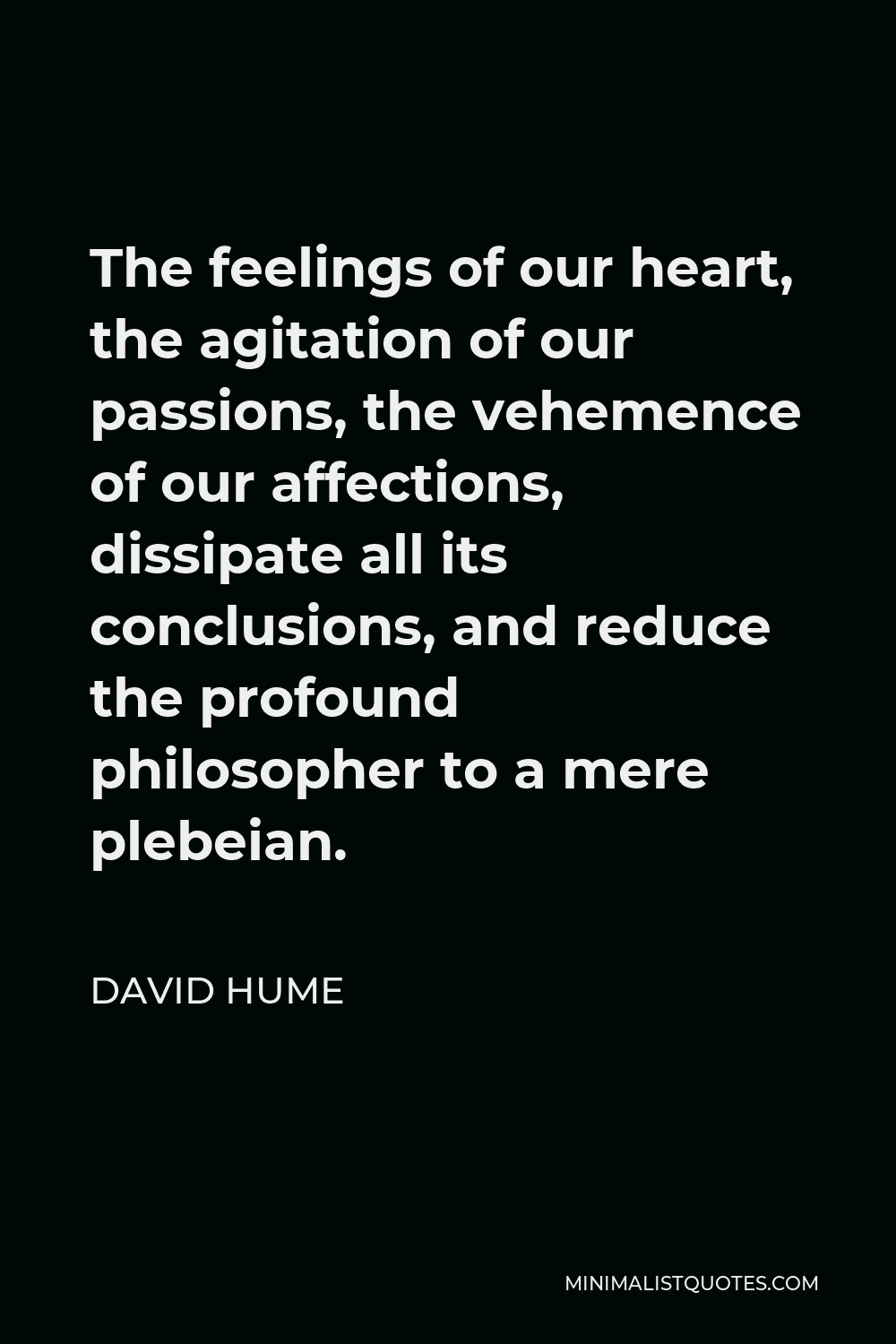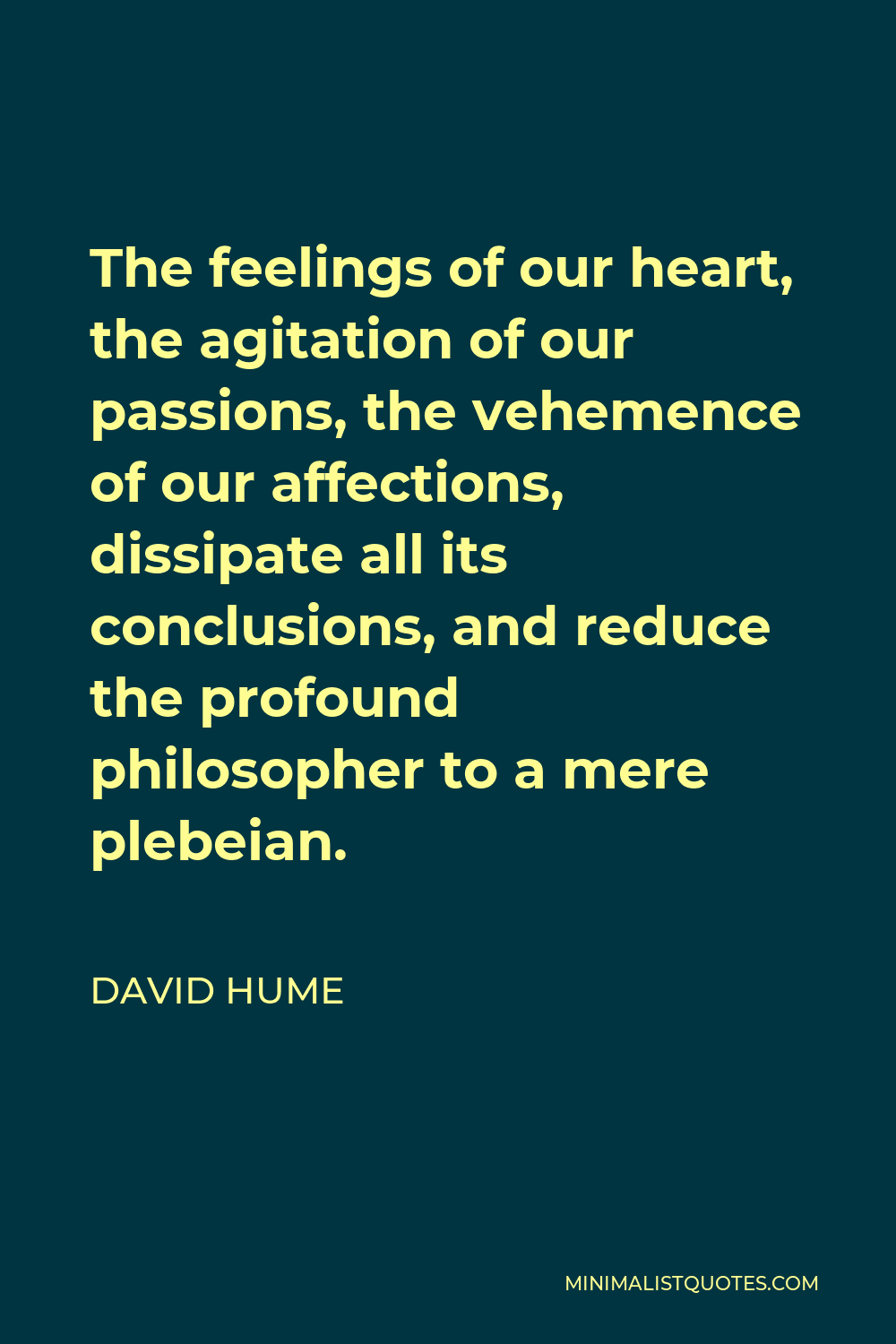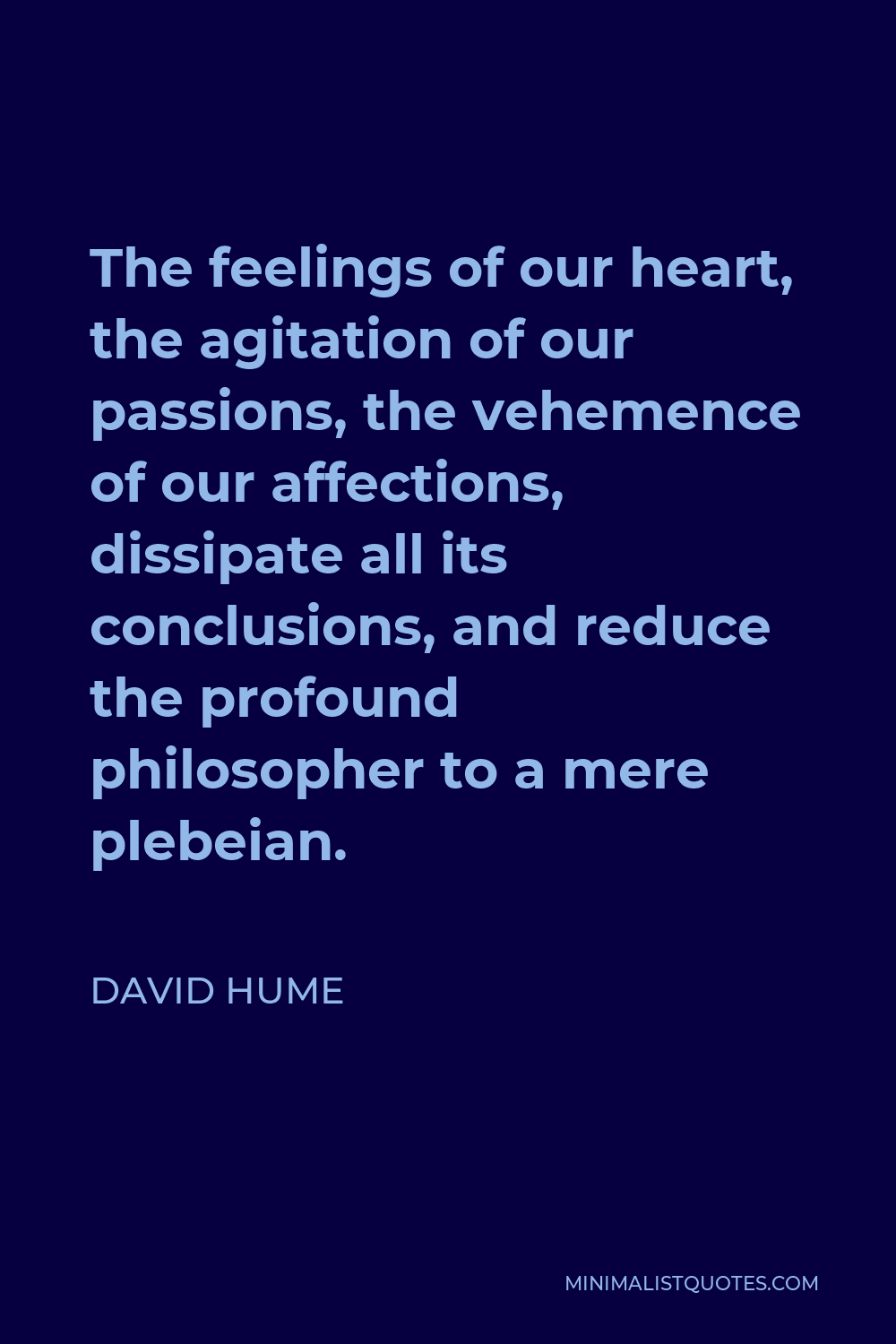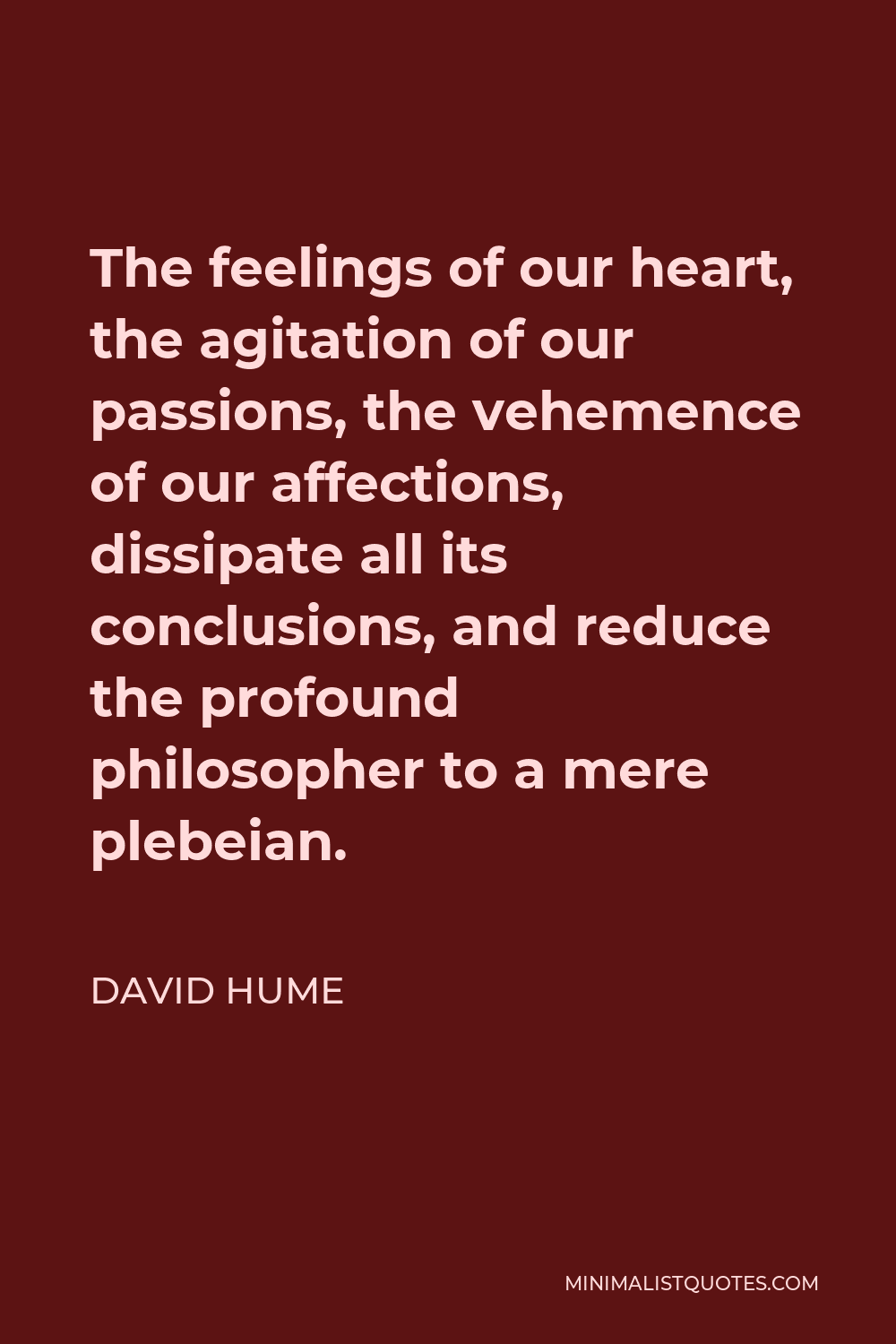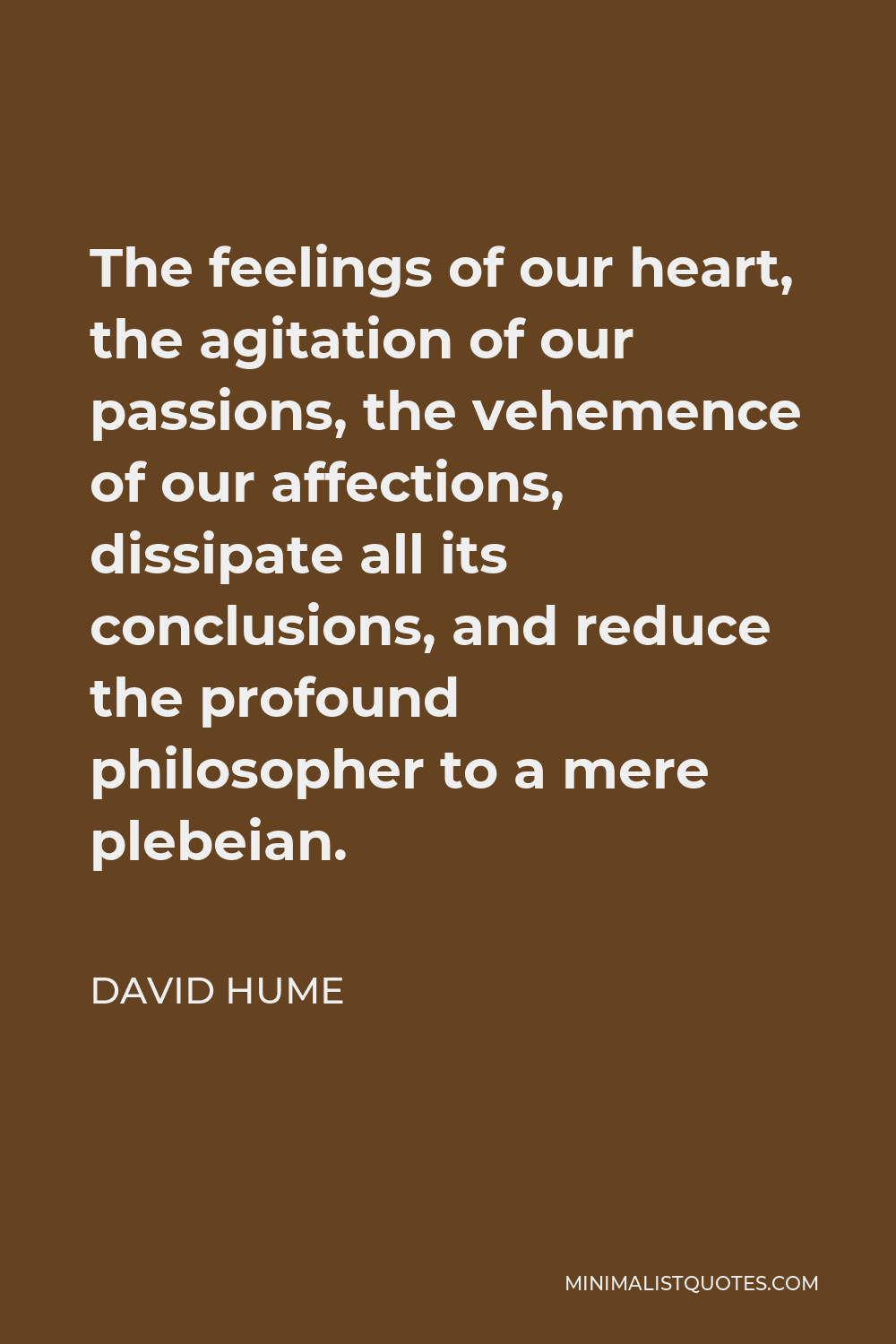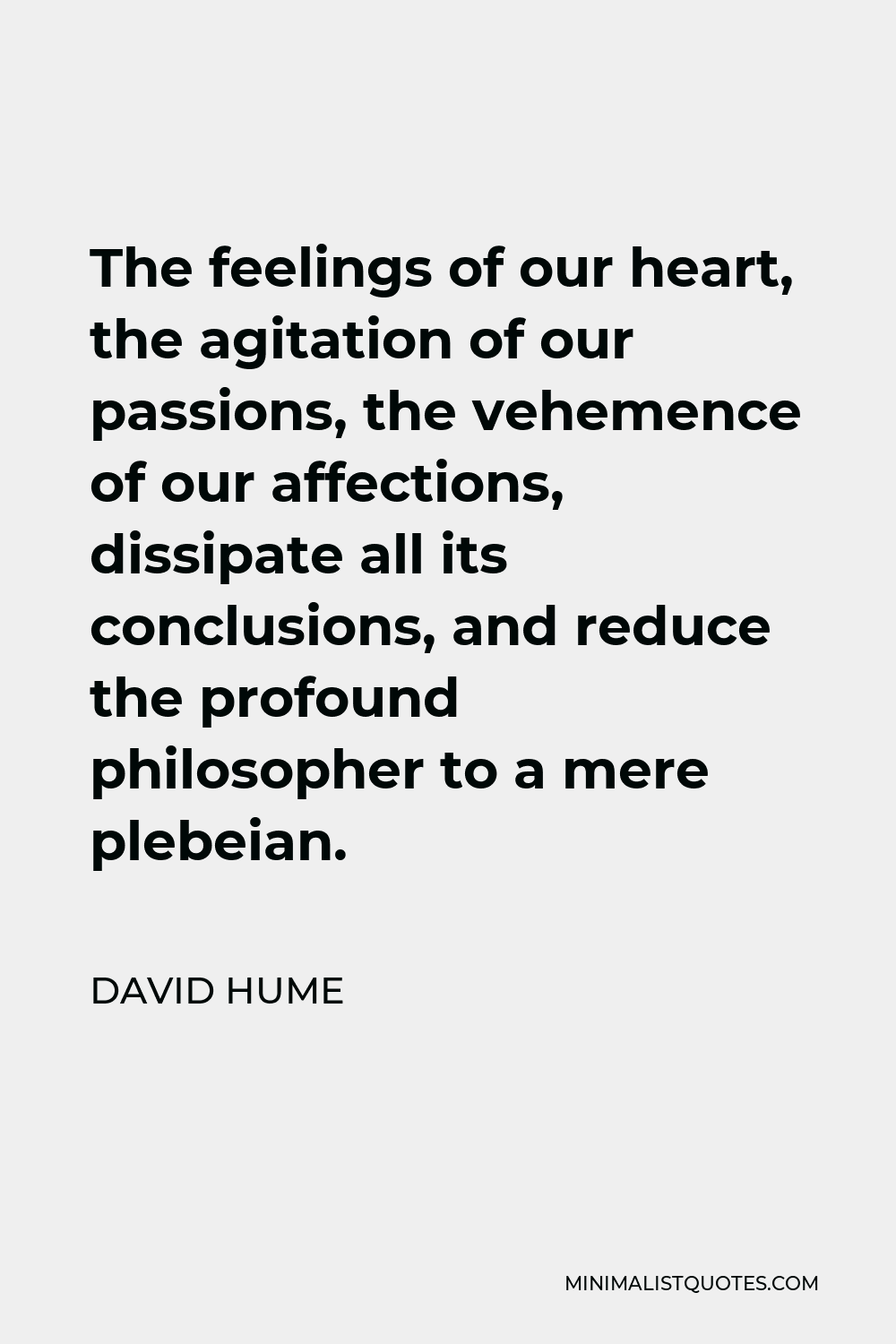It is difficult for a man to speak long of himself without vanity.
DAVID HUMEThe feelings of our heart, the agitation of our passions, the vehemence of our affections, dissipate all its conclusions, and reduce the profound philosopher to a mere plebeian.
More David Hume Quotes
-







-







The bigotry of theologians is a malady which seems almost incurable.
DAVID HUME -







A purpose, an intention, a design, strikes everywhere even the careless, the most stupid thinker.
DAVID HUME -





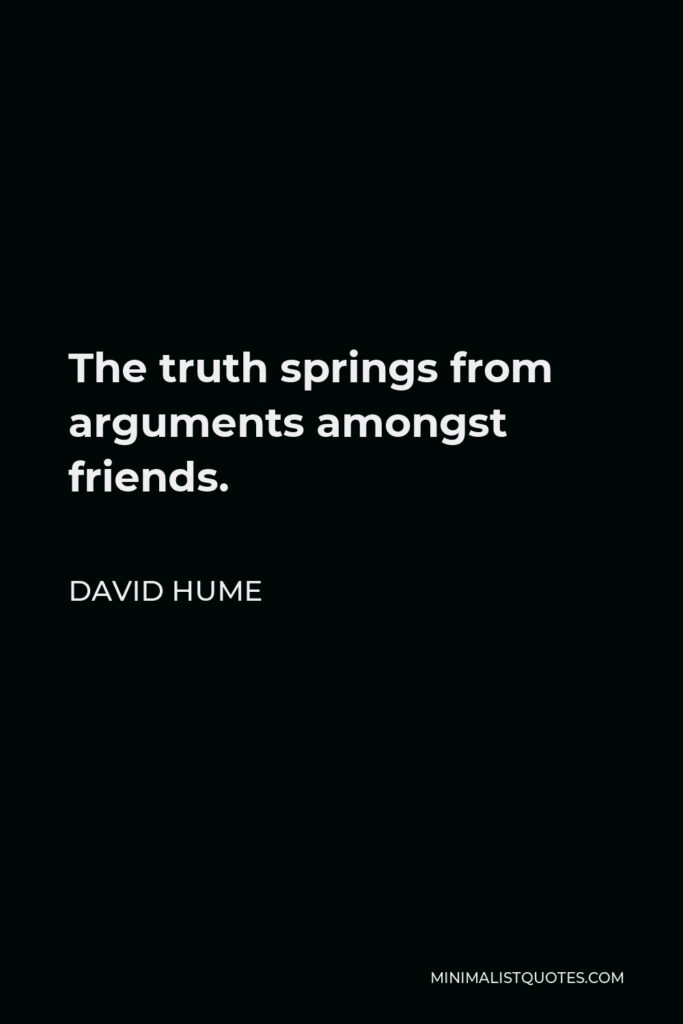

The truth springs from arguments amongst friends.
DAVID HUME -





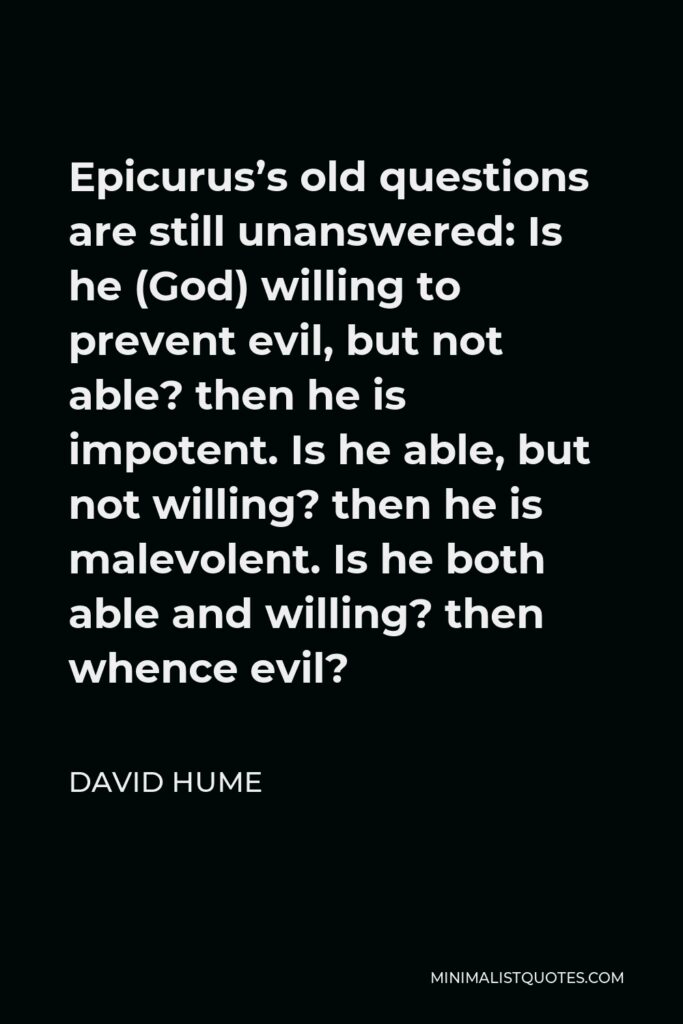

Epicurus’s old questions are still unanswered: Is he (God) willing to prevent evil, but not able? then he is impotent. Is he able, but not willing? then he is malevolent. Is he both able and willing? then whence evil?
DAVID HUME -





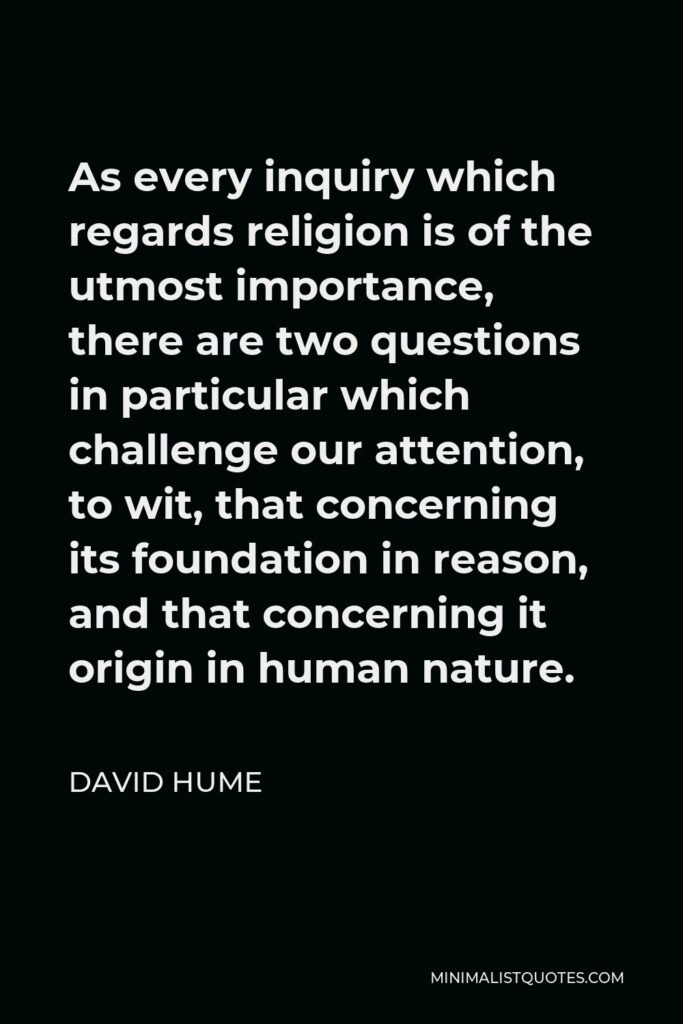

As every inquiry which regards religion is of the utmost importance, there are two questions in particular which challenge our attention, to wit, that concerning its foundation in reason, and that concerning it origin in human nature.
DAVID HUME -







No man ever threw away life while it was worth keeping.
DAVID HUME -





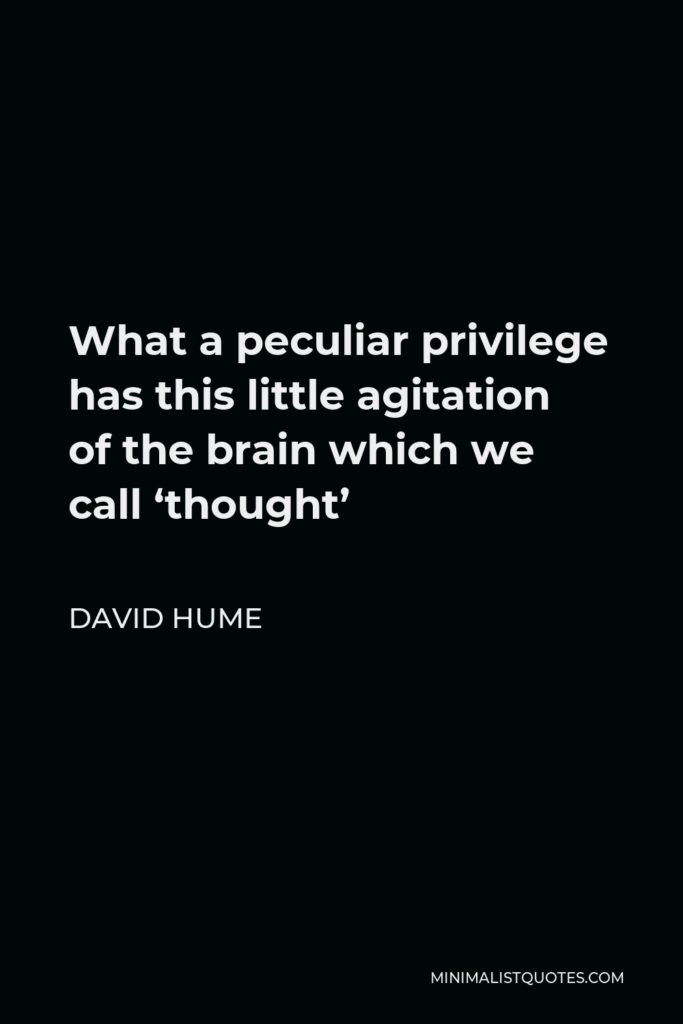

What a peculiar privilege has this little agitation of the brain which we call ‘thought’
DAVID HUME -





![David Hume Quote - The fact that different cultures have different practices no more refutes [moral] objectivism than the fact that water flows in different directions in different places refutes the law of gravity.](https://minimalistquotes.com/wp-content/uploads/2021/05/the-fact-that-different-cultures-have-different-pr-683x1024.jpg)

The fact that different cultures have different practices no more refutes [moral] objectivism than the fact that water flows in different directions in different places refutes the law of gravity.
DAVID HUME -





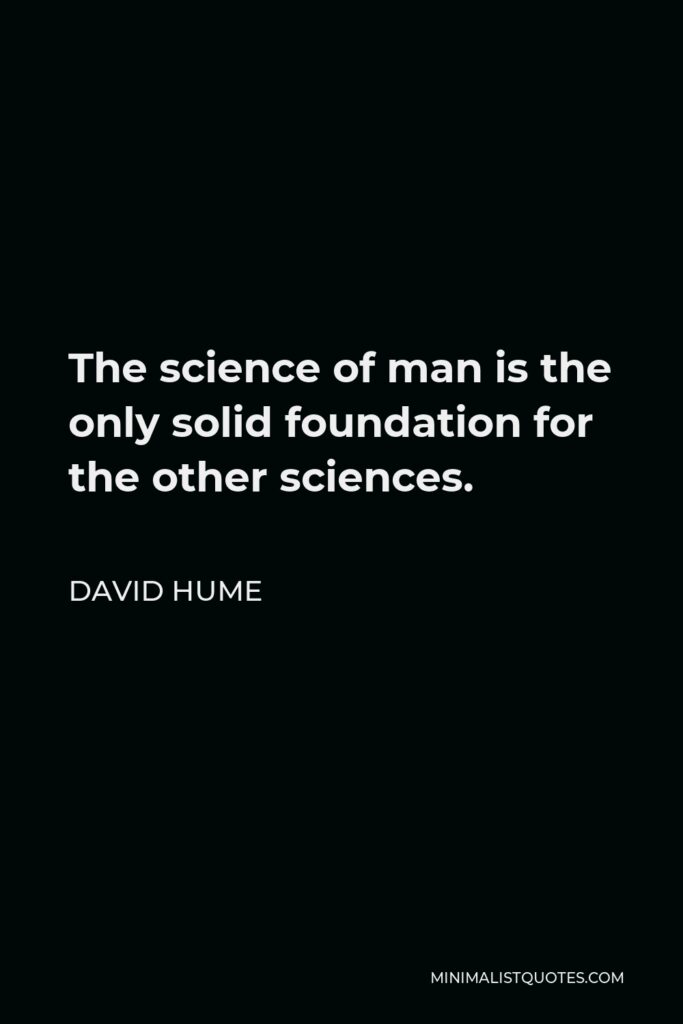

The science of man is the only solid foundation for the other sciences.
DAVID HUME -





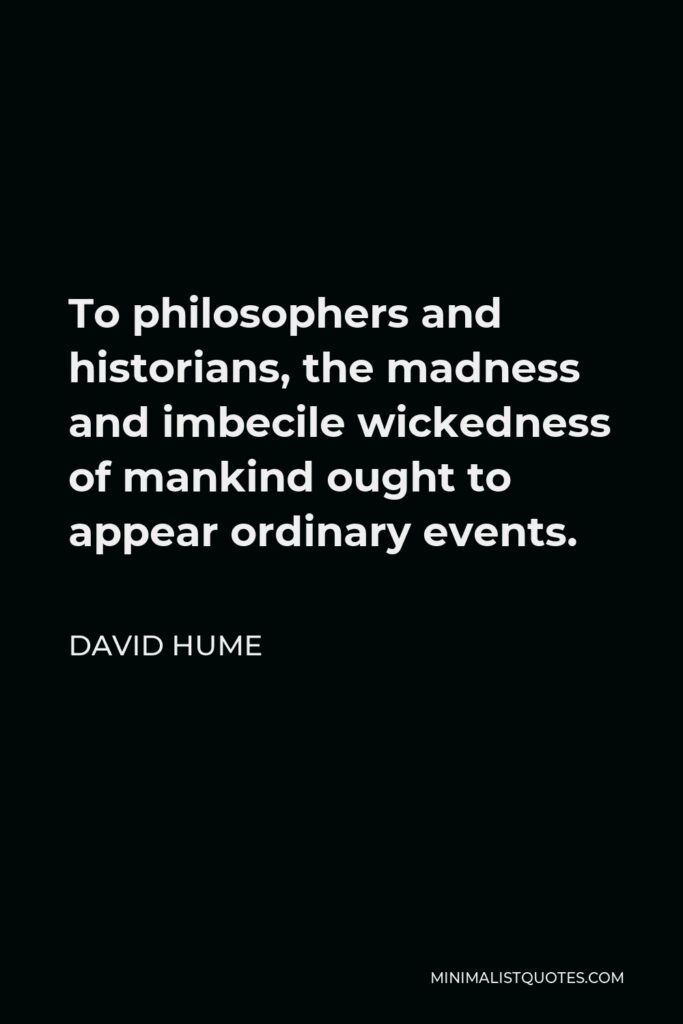

To philosophers and historians, the madness and imbecile wickedness of mankind ought to appear ordinary events.
DAVID HUME -





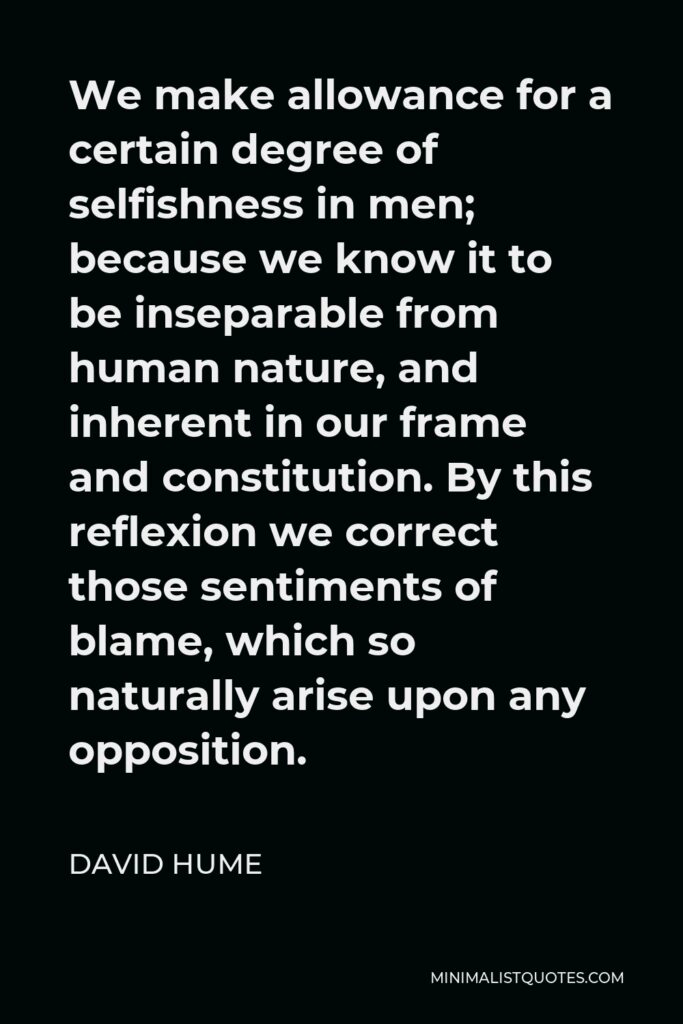

We make allowance for a certain degree of selfishness in men; because we know it to be inseparable from human nature, and inherent in our frame and constitution. By this reflexion we correct those sentiments of blame, which so naturally arise upon any opposition.
DAVID HUME -





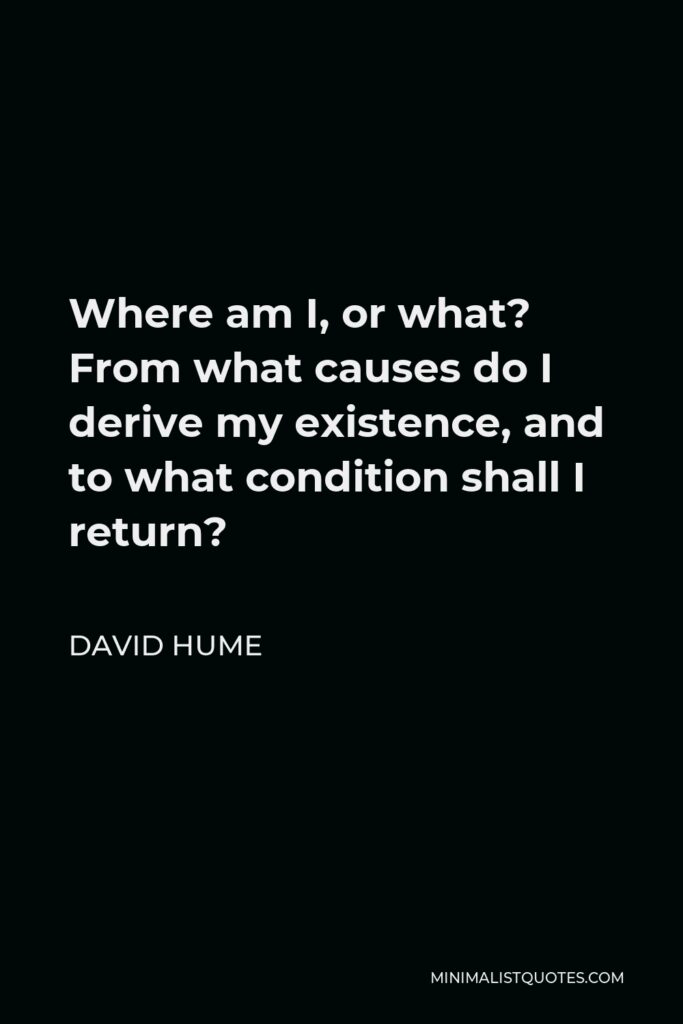

Where am I, or what? From what causes do I derive my existence, and to what condition shall I return?
DAVID HUME -





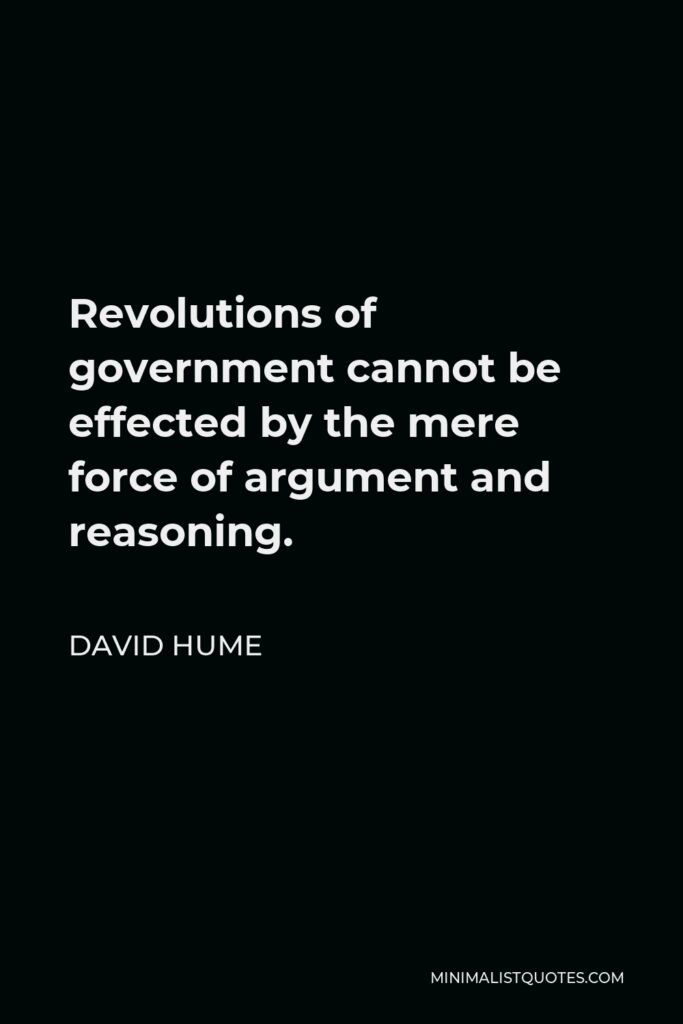

Revolutions of government cannot be effected by the mere force of argument and reasoning.
DAVID HUME -





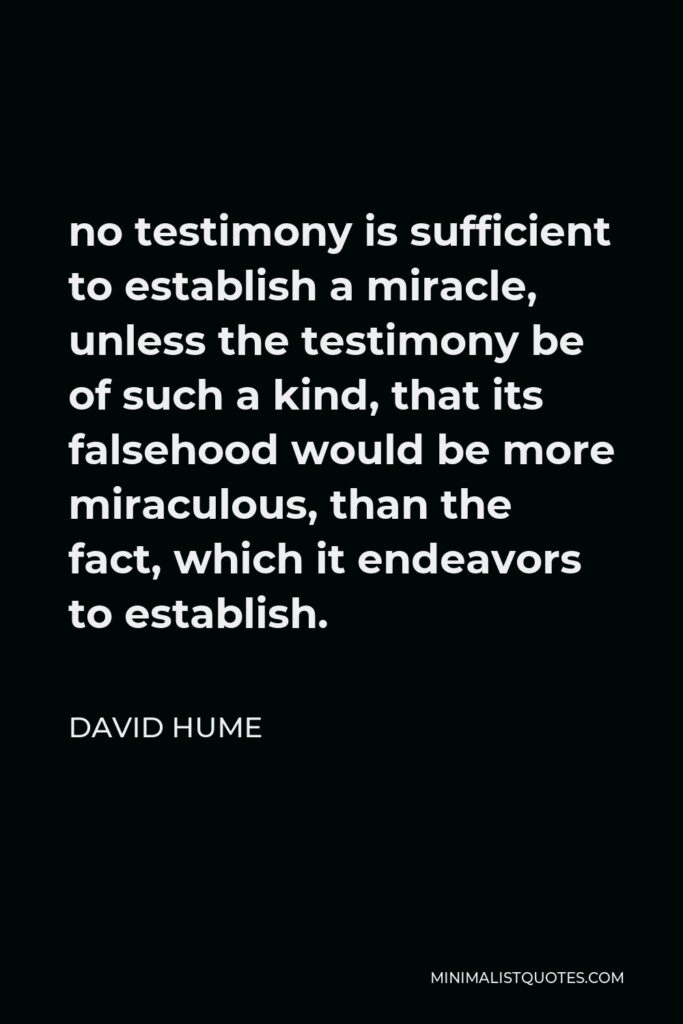

no testimony is sufficient to establish a miracle, unless the testimony be of such a kind, that its falsehood would be more miraculous, than the fact, which it endeavors to establish.
DAVID HUME -





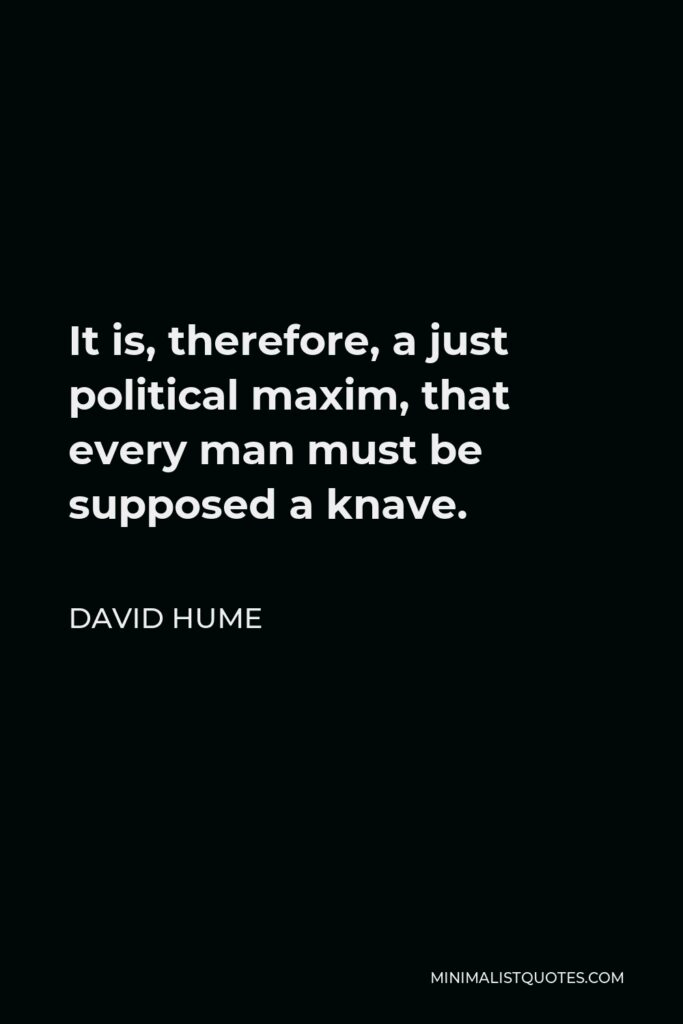

It is, therefore, a just political maxim, that every man must be supposed a knave.
DAVID HUME
